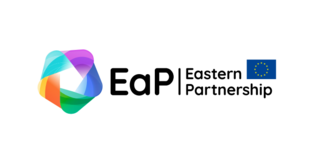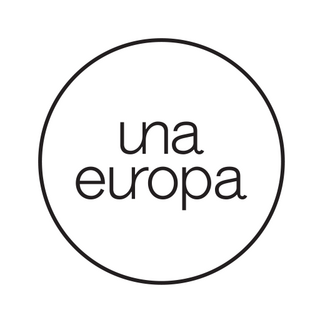The Network of Universities from the Capitals of Europe (UNICA) UNICA is a network of 46 universities from the capital cities of Europe, with a combined strength of over 150,000 staff and 1,800,000 students. [1] It also seeks to be a driving force in the development of the Bologna process and to facilitate the integration of universities from Central and Eastern Europe into the European Higher Education Area. The office of the network is located in the University Foundation in Brussels. [2] [3]
UNICA was founded in 1990 on the initiative of the Université libre de Bruxelles. The mission of the network is to promote academic excellence, integration and cooperation among its member universities throughout Europe. UNICA provides the members with information on European initiatives and programmes, and supports them in co-operative projects, and a forum in which universities can reflect on the demands of strategic change in university research, education and administration. [4] [5]
UNICA signed a cooperation agreement with the Erasmus Student Network in March 2014 in the framework of their collaboration in the ExchangeAbility and Mapability. [6]
In 2022, the organization suspended the three Russian universities because of Russia's war in Ukraine and the support of the rectors to Vladimir Putin's policies. [7]

The Partnership for Peace is a North Atlantic Treaty Organization (NATO) program aimed at creating trust and cooperation between the member states of NATO and other states mostly in Europe, including post-Soviet states; 18 states are members. The program contains 6 areas of cooperation, which aims to build relationships with partners through military-to-military cooperation on training, exercises, disaster planning and response, science and environmental issues, professionalization, policy planning, and relations with civilian government. During policy negotiations in the 1990s, a primary controversy regarding PfP was its ability to be interpreted as a program that is a stepping stone for joining NATO with full Article 5 guarantees.

Vilnius University is a public research university, which is the first and largest university in Lithuania, as well as one of the oldest and most prominent higher education institutions in Central and Eastern Europe. Today, it is Lithuania's leading research institution.
The European University Association (EUA) represents more than 800 institutions of higher education in 48 countries, providing them with a forum for cooperation and the exchange of information on higher education and research policies. Members of the Association are European universities involved in teaching and research, national associations of rectors, and other organisations active in higher education and research.

The AEGEE, or Association des États Généraux des Étudiants de l'Europe, known as European Students' Forum in English, is the largest transnational, interdisciplinary student organisation in Europe.
The Association of Commonwealth Universities (ACU) is a charitable organization that was established in 1913, and has over 400 member institutions in over 40 countries across the Commonwealth. The ACU is the world's oldest international network of universities. Its mission is to promote and support excellence in higher education for the benefit of individuals and societies throughout the Commonwealth and beyond. It has a combined population of 3 billion, mainly under the age of 30, in Commonwealth countries.

The Erasmus Programme is a European Union (EU) student exchange programme established in 1987. Erasmus+, or Erasmus Plus, is the new programme combining all the EU's current schemes for education, training, youth and sport, which was started in January 2014.

The Organization of the Black Sea Economic Cooperation (BSEC) is a regional international organization focusing on multilateral political and economic initiatives aimed at fostering cooperation, peace, stability and prosperity in the Black Sea region. It traces its origin to 25 June 1992, when Turkish President Turgut Özal and leaders of ten other countries gathered in Istanbul and signed the Summit Declaration and the "Bosphorus Statement". BSEC Headquarters – the Permanent International Secretariat of the Organization of the Black Sea Economic Cooperation – was established in March 1994, also in Istanbul.

Moscow State Institute of International Relations (MGIMO) is an institute of higher education located in Moscow, Russia. The institute is run by the Russian Ministry of Foreign Affairs. MGIMO is considered one of the most prestigious and elite universities in Russia.

Tor Vergata University of Rome, also known as the University of Tor Vergata, is a public research university located in Rome, Italy. Located in the southeastern suburb of Rome, the university combines a liberal arts tradition with emphasis on career orientation in the field of Economics, Engineering, Mathematics and Physics, Natural Sciences, and Medicine.
Education in Armenia is held in particular esteem in Armenian culture. Education developed the fastest out of the social services, while health and welfare services attempted to maintain the basic state-planned structure of the Soviet era, following Armenia's independence in 1991. Today, Armenia is trying to implement a new vision for its higher education system while pursuing the goals of the European Higher Education Area. The Ministry of Education and Science oversees education in the country.
The Council on International Educational Exchange (CIEE) is a non-profit organization promoting international education and exchange. It was founded in 1947 and is based in the United States. The organization is headquartered in Portland, Maine.
Scholars at Risk (SAR) is a United States-based international network of academic institutions organized to support and defend the principles of academic freedom and to defend the human rights of scholars around the world. Network membership includes over 530 higher educational institutions in 42 countries.
The European Society for Engineering Education an organisation for engineering education in Europe. Commonly known as SEFI, an acronym for its French name, Société Européenne pour la Formation des Ingénieurs, it is also known in German as the Europäische Gesellschaft für Ingenieur-Ausbildung. SEFI was founded in Brussels in 1973 and has more than 300 members in 40 countries. It promotes information exchange about current developments in the field of engineering education, between teachers, researchers and students in the various European countries.

The Eastern Partnership (EaP) is a joint initiative of the European Union, together with its member states, and six Eastern European countries. The EaP framework governs the EU's relationship with the post-Soviet states of Armenia, Azerbaijan, Belarus, Georgia, Moldova, and Ukraine. The EaP is intended to provide a forum for discussions regarding trade, economic strategy, travel agreements, and other issues between the EU and its Eastern European neighbours. It also aims at building a common area of shared values of democracy, prosperity, stability, and increased cooperation. The project was initiated by Poland and a subsequent proposal was prepared in co-operation with Sweden. It was presented by the foreign ministers of Poland and Sweden at the EU's General Affairs and External Relations Council in Brussels on 26 May 2008. The Eastern Partnership was inaugurated by the EU in Prague, Czech Republic on 7 May 2009.

The foreign relations of Bulgaria are overseen by the Ministry of Foreign Relations headed by the Minister of Foreign Affairs. Situated in Southeast Europe, Bulgaria is a member of both NATO and the European Union. It maintains diplomatic relations with 183 countries.

Ural Federal University, named after the first President of Russia, Boris Yeltsin, is an educational institution in the Ural region of Russia. The Ural Federal University was formed by a merger of the Ural State Technical University and Ural State University. It is one of 10 Russian Federal Universities. The university cooperates with the Russian Academy of Sciences and serves as a research and innovation center for the Ural region. UrFU offers educational programs in four areas of knowledge and 108 academic majors.

ERENET is an open-ended research and development network aiming at carrying out research on entrepreneurship and developing entrepreneurial curricula and teaching materials among the Central- and Eastern European high-schools and academic universities. The network is based on a partnership relation among its members.

The Institute of Intercultural Management and Communication or ISIT, formerly Institut Supérieur d’Interprétation et de Traduction, is a French Grande École of Paris-Panthéon-Assas University.

The Association Trio, also known as the Associated Trio, is a tripartite format for the enhanced cooperation, coordination, and dialogue between the Ministries of Foreign Affairs of Georgia, Moldova and Ukraine with the European Union on issues of common interest related to European integration, enhancing cooperation within the framework of the Eastern Partnership, and committing to the prospect of joining the European Union.

Una Europa is an international network of European research-intensive universities. Launched in early 2019, the alliance is headquartered in Brussels, Belgium and connects eleven universities, nine of which are in the European Union. Taken together, the participating universities teach almost 500,000 students with over 75,000 staff.
{{cite web}}: CS1 maint: numeric names: authors list (link)